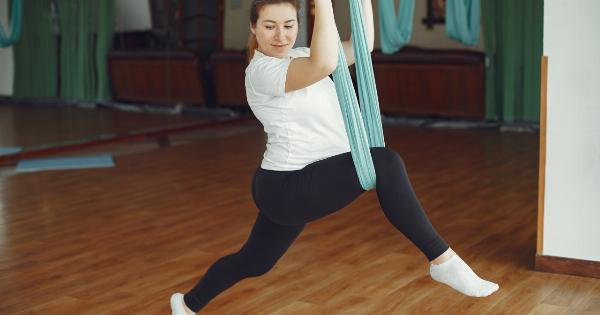Pregnancy is a beautiful yet challenging phase in a woman’s life. It is crucial to take care of oneself physically, emotionally, and mentally during this period. One essential aspect of maintaining a healthy pregnancy is regular exercise.
While some may perceive pregnancy as a time to rest and refrain from physical activity, research has shown that exercise during pregnancy offers numerous benefits for both the mother and the baby.
Why Is Exercise Important During Pregnancy?
1. Improved mood and mental well-being: Pregnancy often brings hormonal changes that can lead to mood swings and feelings of anxiety or depression.
Exercise releases endorphins, also known as “feel-good” hormones, which can boost mood, reduce stress, and enhance overall mental well-being.
2. Reduced pregnancy discomfort: As the baby grows, the body undergoes various changes, such as weight gain, changes in posture, and increased strain on the joints.
Engaging in regular exercise helps strengthen muscles, improve flexibility, and alleviate common discomforts such as backaches, swelling, and constipation.
3. Increased energy levels: Pregnancy can often leave women feeling fatigued and drained. Exercise helps improve cardiovascular function, increasing stamina and energy levels, making daily tasks more manageable.
4. Better sleep: Poor sleep is a common complaint during pregnancy due to hormonal fluctuations, discomfort, and anxiety. Regular exercise can aid in promoting better sleep patterns and overall sleep quality.
5. Preparation for labor and childbirth: Labor is a physically demanding process, and staying active during pregnancy can help prepare the body for the challenges of childbirth.
Strengthening the muscles, particularly the pelvic floor muscles, through exercise can potentially ease labor and promote a smoother delivery.
Types of Exercises Recommended During Pregnancy
Pregnant women should consult their healthcare provider before starting any exercise routine to ensure their safety and discuss individual considerations.
However, certain types of exercises are generally considered safe and beneficial during pregnancy:.
1. Aerobic exercises:
Aerobic exercises increase heart and lung function, improving overall cardiovascular health.
Low-impact exercises like walking, swimming, stationary cycling, and prenatal aerobics are usually safe and effective for pregnant women, as they minimize stress on the joints.
2. Strength training exercises:
Gradual strength training exercises using light to moderate weights or resistance bands can help maintain muscle tone and strengthen the body to support the weight gain associated with pregnancy.
Focus should be on large muscle groups and avoiding heavy weights to prevent strain.
3. Prenatal yoga and Pilates:
These exercises concentrate on stretching, core strength, and improving flexibility. They also emphasize specific breathing techniques and relaxation, which can be beneficial during labor and delivery.
4. Pelvic floor exercises:
Also known as Kegel exercises, these help strengthen the pelvic floor muscles. Strong pelvic floor muscles are vital during pregnancy and postpartum recovery, as they can prevent urinary incontinence and support the growing baby.
5. Prenatal swimming:
Swimming is a low-impact exercise that helps improve cardiovascular fitness and reduce swelling. The buoyancy of water supports the weight of the belly, relieving pressure on the joints.
Exercise Precautions During Pregnancy
While exercise is generally safe during pregnancy, it is essential to take certain precautions:.
1. Consult with healthcare provider:
Before starting or continuing any exercise routine, consult with your healthcare provider to evaluate your individual situation and get personalized guidelines.
2. Stay hydrated:
Drink plenty of water before, during, and after exercise to prevent dehydration.
3. Wear appropriate clothing and footwear:
Choose comfortable clothing that allows for unrestricted movement. Wear supportive shoes to minimize the risk of falls and injuries.
4. Avoid overheating:
Avoid exercising in hot and humid environments to prevent overheating, as it may harm both the mother and the developing baby.
5. Modify or avoid certain exercises:
Avoid exercises that involve lying flat on your back after the first trimester, as it can put pressure on a major vein and affect blood flow.
Additionally, opt for modified exercises that avoid excessive twisting or strain on the abdominal muscles to protect the growing baby.
Conclusion
Regular exercise during pregnancy is highly beneficial for both the mother and the baby. From improved mood and increased energy levels to better sleep quality and preparation for labor, the advantages of exercising while pregnant are numerous.
Engaging in safe and recommended exercises can contribute to a healthier pregnancy, faster postpartum recovery, and a smoother transition into motherhood. Remember to consult with a healthcare provider and take necessary precautions to ensure a safe and enjoyable exercise experience throughout the journey of pregnancy.




























